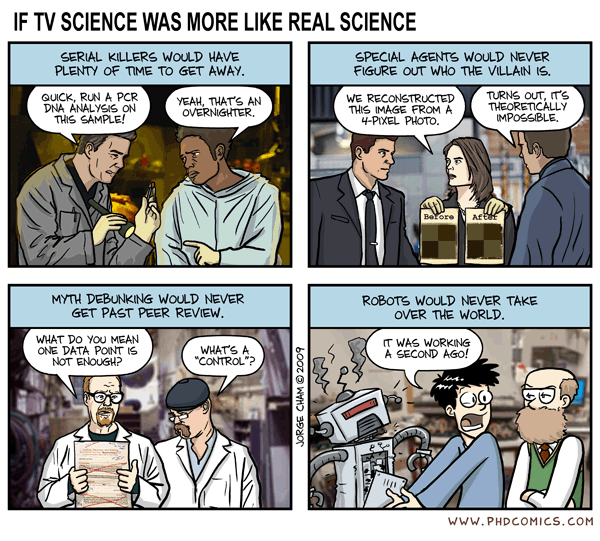In 1874, in preparing a
demographic survey of English scientists, Francis Galton noticed a funny thing: nearly half of all English scientists were oldest or only sons. In the following 135 years, the notion that your birth order affects personality, intelligence, success in the world, and just about anything and everything else has become a mainstay in popular culture. A search on Amazon turned up
over 10,000 books, including such titles as
The Birth Order Book: Why You are the Way You Are and
The Birth Order Connection: Finding and Keeping the Love of Your Life.
Are Birth Order Effects Real?
It may be surprising, then, that the scientific evidence for birth order effects is heavily controversial. Perhaps more studies that failed to find any effect of birth order as studies that do (see Ernst & Angst's
Birth Order: Its Influence on Personality), and many studies that do show such effects are hopelessly confounded. Take Galton's original study. In the 1800s, many scientists were men of independent wealth. Generally, the bulk of inherited wealth went to the oldest son. So there were just more oldest and only sons available to be scientists. There were probably also more younger sons in the military, but this shouldn't be taken as evidence that younger children are more violent.
Modern day family size tends to be related to ethnicity and class. Poor families have more children than rich families, so being a middle child actually correlates with being poor. So if poor educational achievement correlates with being a middle child (which it probably does), that may just be that more middle children go to crumbling schools than do oldest or youngest children.
So if there are no birth order effects, what does that mean? Researchers like Steven Pinker (
The Blank Slate) and Judith Rich Harris (
The Nurture Assumption: Why Children Turn out the Way They Do) point out that if birth order effects are not real then this calls into question whether your home environment has any effect on how you turned out. If the existence or non-existence of siblings doesn't effect your personality, what chance is there that whether your parents read to you had an effect either? (They both go on to marshall additional evidence that the home environment has no lasting effects.)
Seriously?
Harris and Pinker's claims fly in the fact of much of what we hear. Everybody knows that children who are read to do better in school, right? Children who were beaten by their parents beat their own children. Unfortunately, data like these run up against a very basic problem in science:
correlation does not equal cause and effect.
For instance, it is almost certainly the case that the height of the youngest child in the family is correlated with the height of the oldest child of the family. I'm tall and my younger brothers are tall, too. But I can't take credit for making them tall. We happen to share the same growth-related genes.
Similarly, maybe the genes that lead a particular parent to be the sort of parent who reads to her child are also genes that make children do well in school. If this sounds implausible ("genes for reading to one's child?"), consider that there is a personality difference between people who like to read and those who don't. The former might read to their children more. And those children, inheriting the same book-worm genes, do well in school.
(If you don't believe behavior is partly inheritable,
The Blank Slate does a good job of summarizing the mountain of research that it is. You might also speculate on why cats act like cats, snakes like snakes, and humans like humans. It can't all be learned. My cats were raised by humans from birth, but they have yet to learn to talk, tie their shoes or clean their own litter box.)
Love, Marriage and Birth Order
One of the difficulties with the existing literature is that it tends to test specific claims about birth order (e.g., older children are more likely to be scientists). So if the experiment fails (the hypothesis is disproven), you only know that your specific idea about birth order is wrong. It doesn't mean that birth order doesn't have some other effect.
In trying to think of a very general test of birth order effects, I realized that a century of research has shown that like marries like. Spouses correlate on just about everything measurable, from physique to personality. Certainly, spouses aren't identical twins, but they tend to be more alike one another than you'd expect if people married random strangers off the street. So if birth order affects personality, and people choose spouses based on having similar personalities, spouses should (on average) have similar birth orders.
In a paper to be published by the Journal of Individual Psychology, my co-authors and I found not only do spouses have similar birth orders, best friends do, too. The effect is not huge, but it probably shouldn't be. Nobody thinks birth order rigidly determines personality, and neither do people rigidly marry others with identical personalities. What we expected was a weak correlation.
Unlike much previous research, this effect can't be due to socio-economic factors. Although middle children are more common in poorer families or in families of certain ethnic groups, there is no ethnic group -- can be no ethnic group -- in which older children are more common than younger children. And yet oldest-oldest and youngest-youngest pairings were more common that oldest-youngest pairings.
Personality or Intelligence?
Afficionados will notice there is another possible explanation. There is now convincing evidence that
birth order is related to intelligence. Since spouse's tend to IQs correlate, it could be that IQ drove this effect. Whether this is a counter-hypothesis or not depends on whether you think intelligence is completely unrelated to personality, which seems to be more of a definitional question than a scientific one. But it does raise the question of which aspects of behavior are affected by birth order.
Either way, I think these results maintain some hope for the idea that we are at least partly shaped by how we grew up. It's important to recognize that the effects we found in this study were not large, though of course it would be surprising if it were large. Nobody thinks birth order rigidly determines personality, and neither do people always marry clones of themselves. So the correlation was never likely to be large.
Many Thanks
I want to conclude this post by thanking the participants in this study, many of whom may be among the readers. One of the surveys included in this paper was conducted through the
Cognition and Language Laboratory on the Web. And of course, I invite anyone who is interesting in helping out in future research to participate in the
new experiments we have running on the site.
























